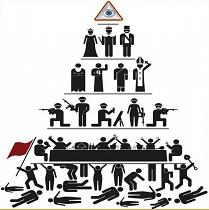Vancouver: Native Canadians deal with cycle of abuse
VANCOUVER—When I was about 15 years old I ran away from my parent’s home in Burnaby. My parents were alcoholics and there was a lot of abusive behaviour and yelling in our home.
This is common in a lot of Native homes, but I think this is because our parents are mimicking the behaviors of abuse that they learned in residential schools. Residential schools were a terrible nightmare. White people were in charge of the schools and their main purpose was to ‘beat the Indian out of us’. It was a means of controlling Native people and trying to subordinate us to White society. Young Native people were ripped from their homes, beaten when we spoke our own languages, and denied the right to our history, our culture, and the safety and wisdom of our families. My dad used to get beat up badly in the residential school that he was in, and so he behaved the same with us.
One night my sister and I decided we had had enough of our parents’ drinking and fighting. We jumped out of the window and took nothing except the clothes on our back. I remember thinking: “What are we going to do and where are we going to go?” We hitchhiked all the way from Burnaby to Main and Hastings, the heart of the Downtown East Side (DTES).
Once we got to Main and Hastings, we ran into two older guys who allowed us to stay with them and introduced us to pot and alcohol. But of course, we could not stay with them for free. We had to have sex with these two men. They would get us drunk and then force themselves on us. Although they took advantage of us sexually, we stayed with the two men, because we felt it was safer than the alternative of being alone on the streets or back in our parents’ abusive home. As with many other women fleeing parental or partner violence, my sister and I became re-victimized as women without homes and vulnerable in our relationships with men.
The police were often looking for us because we were reported as missing by our family. Until we became legally recognized as adults, the police would track us down and drag us back home, where we would get locked into our rooms. Because the abuse at home did not stop, we kept running away. The police never asked us why we kept running away; they just keep dragging us back to the same situation that we were running from.
At the age of 16, I started hooking (working on the street as a sex worker) in the DTES. I learned how to talk to guys, how to ask for money, and how much to charge. But I did not know much about safety—such as using condoms to protect against STIs and pregnancy. I had four abortions while working on the street. Working the street was also very dangerous because you never knew if you would come back alive. According to a 2001 PACE report, one-third of surveyed women in the survival sex-trade in the DTES said they had survived an attack on their life. A guy could beat you, rape you, or murder you. I feel lucky that I wasn’t one of serial killer Robert Pickton’s victims, though I know that I easily could have been. I remember hearing that he was driving around the area where I was working. I knew three of the women who were murdered on his farm.
Read more?
Internet site reference: http://www.dominionpaper.ca/articles/4084
Comments
There are 0 comments on this post















